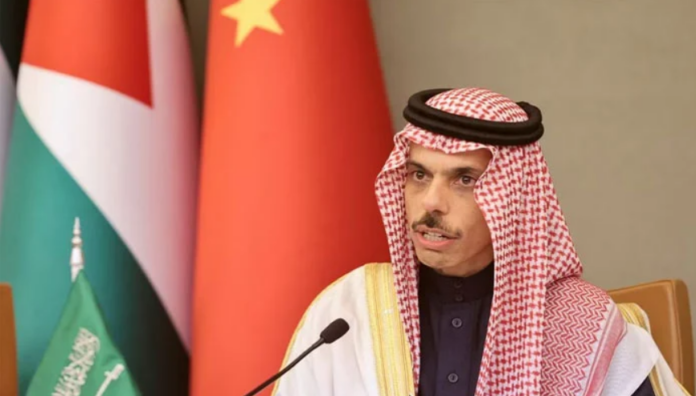DM Monitoring
RIYADH: Saudi Arabia will not normalise ties with Israel in the absence of a two-state solution with the Palestinians, the kingdom’s top diplomat has said, according to a tweet by the foreign ministry on Friday.
The comments by Prince Faisal bin Farhan Al Saud on the sidelines of the World Economic Forum in Davos came as Is-raeli Prime Minister Benjamin Netanyahu discussed normalisation with Saudi Arabia in talks with White House National Security Advisor Jake Sullivan in Jerusalem on Thursday.
“True normalisation and true stability will only come through… giving the Palestinians a state,” Prince Faisal told Bloomberg at the summit.
Saudi Arabia, the world’s largest oil exporter, is a close partner of the United States but it has repeatedly refused to normalise ties with US-ally Israel due to its occupation of Palestinian territories.
The US-brokered Abraham Accords in 2020 saw the kingdom’s neighbours — the United Arab Emirates and Bahrain — establish full diplomatic ties with Israel.
Netanyahu has repeatedly expressed his desire to see Saudi Arabia join the list.
In their talks on Thursday, Netanyahu and Sullivan discussed “measures to deepen the Abraham Accords… with an emphasis on a breakthrough with Saudi,” the Israeli leader’s office said.
The West Bank and the Gaza Strip plus Israeli-annexed east Jerusalem were long touted as the basis of a Palestinian state in a “two-state” solution to the long-running conflict.
But that goal has become ever more distant, with the occupied West Bank fragmented by Jewish settlements.
Netanyahu plans to pursue a policy of increased settlement expansion in the West Bank, with ultra-Orthodox Jewish parties in his coalition advocating the annexation of some of the territory.
Besides, Netanyahu has taken aim at the internationally recognized Palestinian leadership in the occupied West Bank. Palestinians successfully lobbied the U.N. General Assembly to seek a legal opinion from the International Court of Justice on Israel’s policies in the occupied West Bank and east Jerusalem, and the Israeli government responded with a series of punitive measures.
Some of the steps have hit the Palestinians hard, such as withholding some $40 million in tax revenues and instead using the money to compensate Israeli victims of Palestinian violence. There are also plans to halt development in Palestinian villages in Israeli-controlled parts of the West Bank.
Other moves have been more symbolic, such as revoking the VIP privileges of top Palestinian officials and banning displays of Palestinian flags inside Israel.




